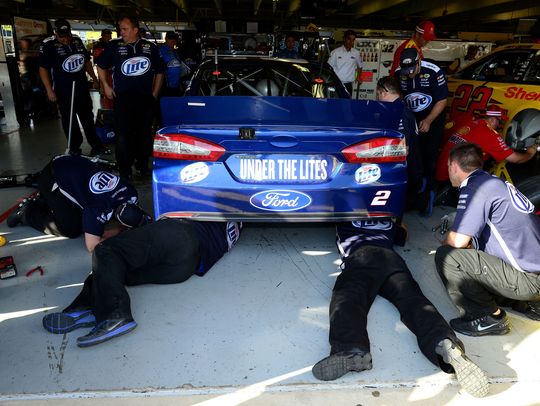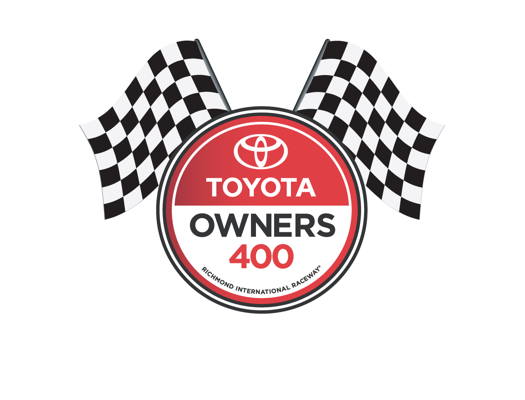Following his win at Kansas Speedway, NASCAR deemed Matt Kenseth’s motor to be illegal. A connecting rod was found to be approximately 2.7 grams underweight when NASCAR weighed it during the tear down of the race winning No.20 car from Kansas. The other seven connecting rods were each a few grams to the good and perfectly legal.
As a result, they practically did everything BUT take the win away from Kenseth and his team.
- Crew chief Jason Ratcliff has been fined $200,000 and suspended from NASCAR until the completion of the next six NASCAR Sprint Cup Series championship points events (a period of time that also includes the non-points NASCAR Sprint All-Star Race) and placed on probation until Dec. 31.
- Car owner Joe Gibbs has lost 50 championship car owner points; the first place finish from April 21 at Kansas Speedway will not earn bonus points toward the accumulated aggregate car owner points total after the completion of the first 26 events of the current season and will not be credited towards the eligibility for a car owner Wild Card position; has had the owner’s license for the No. 20 NASCAR Sprint Cup Series car suspended until the completion of the next six championship points events, therefore being ineligible to receive championship car owner points during that period of time.
- Driver Matt Kenseth has lost 50 championship driver points; the Coors Light Pole award from April 19 at Kansas Speedway will not be allowed for eligibility into the 2014 Sprint Unlimited; the first place finish from April 21 at Kansas Speedway will not earn bonus points toward the accumulated aggregate driver points total after the completion of the first 26 events of the current season and will not be credited towards the eligibility for a driver Wild Card position.
- The loss of five NASCAR Sprint Cup Series Manufacturer Championship points.
Now in looking at these penalties, you could say that they are double of what Brad Keselowski and Joey Logano received – six week suspension, $100,000 fine and 25 points. It was determined in a previous article here at Speedway Media that those penalties were fair, when compared to those of the No. 48 team. If you missed the article, click here to read it.
So why was this penalty worse?
Well, the engine is one area that NASCAR does not like teams touching more so than others. It’s considered sacred ground. The last time a team was penalized as such for a penalty was in 2009. Carl Long’s engine was .17 cubic inches to big in NASCAR opinion and rule book. As a result, he as issued the following penalties:
“As a result, crew chief Charles Swing has been fined $200,000, suspended from the next 12 NASCAR Sprint Cup Series Championship events, suspended from NASCAR until Aug. 18 and placed on NASCAR probation until Dec. 31.
“Driver Carl Long and owner Danielle Long have been penalized with the loss of 200 driver and 200 owner points, respectively, suspended from the next 12 NASCAR Sprint Cup Series Championship events, suspended from NASCAR until Aug. 18 and placed on NASCAR probation until Dec. 31.”(Jayski.com)
With 50 points under the new system being equal to 200 points under the old system, it looks as though the penalty is equal. Consistancy once again displayed by NASCAR.
However, there is a problem.
See, Joe Gibbs Racing gets their motors from Toyota Racing Development (TRD). TRD has actually taken full responsibility for the problem in stating that it as an oversight in their part. TRD’s vice president told USA Today that they get their rods from another company and request them to be over the minimum weight allowance. This was an oversight in one that got through the system and was part of Kenseth’s motors.
JGR has stated that they will appeal and one of the things that will be said in that appeal is that of the above. They will state it wasn’t their fault.
So when it comes to a situation like this, what to do?
It wasn’t something that was done as a performance advantage as one rod lighter than the other seven does not do that. It was a simple oversight in production. Do you just let it slip with light penalties, say 6 or even 25 points with probation?
It also wasn’t that of JGR’s fault, but do they accept responsibility as soon as they put their trust in TRD?
If you want to put the blame into the right account, how do you do so? Do you penalize TRD a substantial fine and warn them that future issues with motors could result in teams they work with receiving penalties?
Let’s also recall that JGR switched from Triad motors to TRD and has since experienced some noted engine failures, despite the success. Does this put a hinder on the relationship and cause JGR to go back with Triad motors?
With the amount of penalties as of late and the appeals that are forth coming, there are many questions to be asked and a lot to happen in the next few months. Can you say that the race to the Chase will be filled with these storylines?







